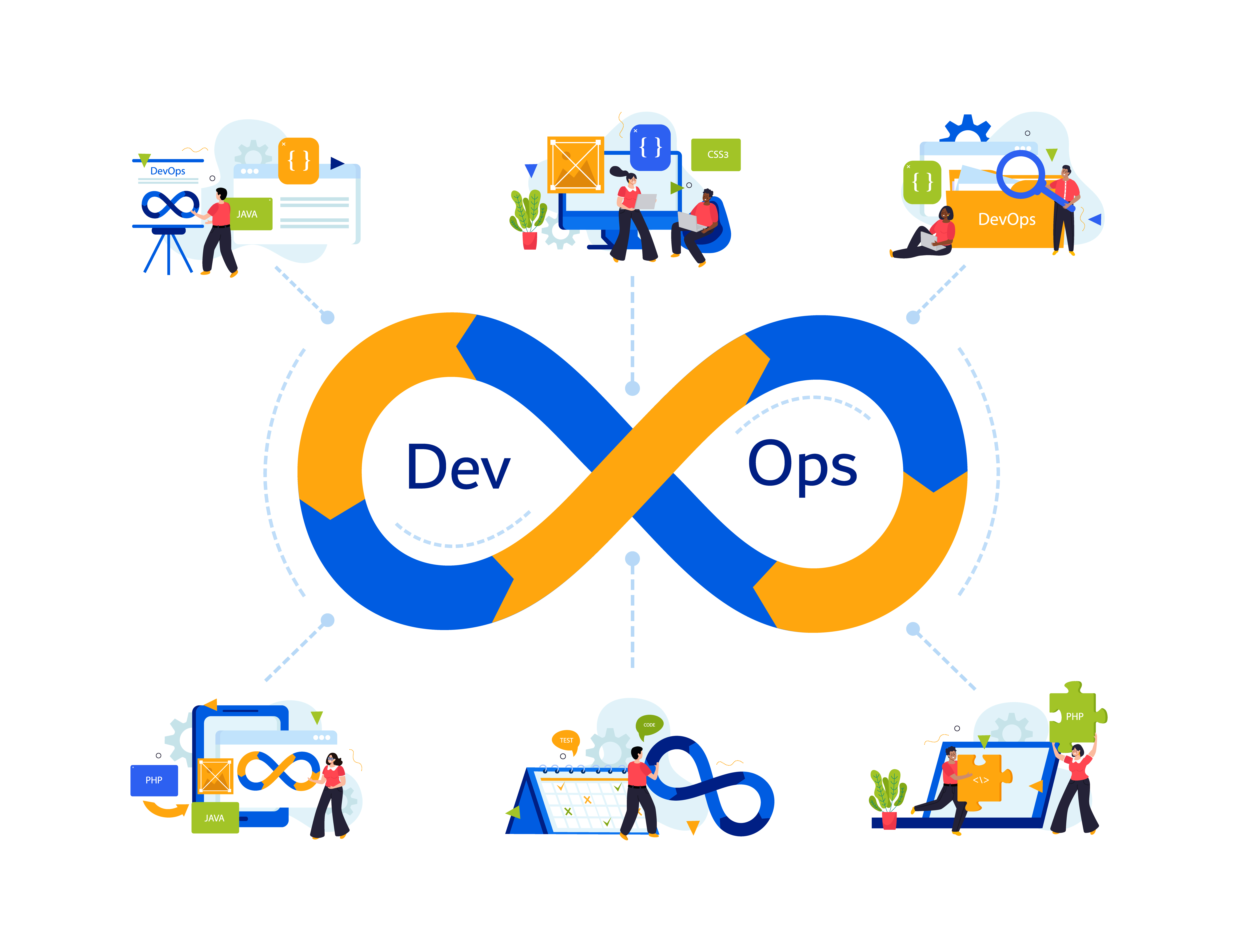Evolution of DevOps & How Market Gets Changed
 Sagar Vashnav
Sagar Vashnav
Hello, everyone. We are all receiving updates on how the industry is shifting its infrastructure to a DevOps culture and increasing productivity and revenue in a short period.
Everyone has heard of the term "DevOps." However, everyone is perplexed as to where it came from, why it is booming, why it is not cost-effective, and how it improves the smoothness of software development. So, let's try to figure out where it came from and how it broke down the limits of the traditional waterfall model.
Let's Go to The Root
Sometime between 2007 and 2008, the software development and IT operations communities began to voice worries about what they perceived to be a deadly degree of dysfunction in the industry, which led to the formation of the DevOps movement.
The conventional software development paradigm, which demanded that programmers and deployers be functionally and organizationally separate, was derided by them.
IT/Ops professionals and developers frequently worked on different floors or even in other buildings, had different (and sometimes conflicting) goals, different department leadership, and different KPIs that were used to evaluate them. They claimed that there had to be a better approach. With leaders like Patrick Debois, Gene Kim, and John Willis spearheading the conversation, the two communities eventually came together and began speaking.
I'm sure you've heard a few things regarding DevOps and how it can work like magic for teams. DevOps teams are almost unanimous (99%) in their confidence in the performance of their code once it enters production.
The future of software development and operational effectiveness is being shaped by DevOps, an essential component of the rapidly changing area of technology. Certain scenarios that are becoming more and more common are especially relevant to this overwhelming popularity.
How It Becomes the Heart of Development
2024: DevOps's Big Year
DevOps is set to go on a revolutionary adventure in 2024. It's expected that automation will reach previously unheard-of heights, revolutionizing development processes and accelerating deployment times. High levels of efficiency are anticipated for continuous integration and continuous delivery (CI/CD) pipelines, enabling dependable and quick software releases.
Promoting an Agile Mindset That Is Human-Centric
It is anticipated that businesses would understand that agile transformation needs to be comprehensive, encompassing improvements on the business side as well as software and shorter cycles. Success is thought to depend on a change that emphasizes the human-centric elements of agile development.
Acknowledgment of the 99% of developers
It is anticipated that companies will come to understand the importance of the "99% Developers," or those who operate in the background but make substantial contributions to software development. Sustaining company success is believed to depend on comprehending the requirements of this majority.
The Group's Perspective
Predictions on the prospects, difficulties, and trends of DevOps in 2024 have been made by the IT industry. These will serve as a roadmap for businesses as they navigate the world of software development. The future will be shaped by trends like Web3 technology, monolithic structures, and composable software.
How Corporate Revenue Increases
To demonstrate this, let's look into the various DevOps scenarios of companies:
1. 86% of organizations say it’s important for their company to develop and begin production of new software quickly (Google).
Businesses that can provide consumers with digital goods promptly have an advantage over rivals. Falling behind could lead to strained customer relations and a loss of market share to competitors with greater agility.
22% of organizations operating at the highest security level have also reached an advanced stage of DevOps (Puppet).
There is an overlap between security and DevOps success factors. Teams that understand security are better suited to adopt DevOps and succeed with it.
Forrester predicts release frequency will decrease by 5% in 2020 (Forrester).
DevOps top performers will probably feel this anticipated slowdown. Release speeds will probably continue to rise for teams who are actively developing and refining their DevOps program, rather than declining.
Conclusion
With its low downtime rate, increased autoscaling, and ongoing software growth, DevOps has evolved into a future technology that benefits corporations without having an impact on developers.
Subscribe to my newsletter
Read articles from Sagar Vashnav directly inside your inbox. Subscribe to the newsletter, and don't miss out.
Written by

Sagar Vashnav
Sagar Vashnav
I am a developer who loves to explore new technology and is always ready to adopt new technologies.